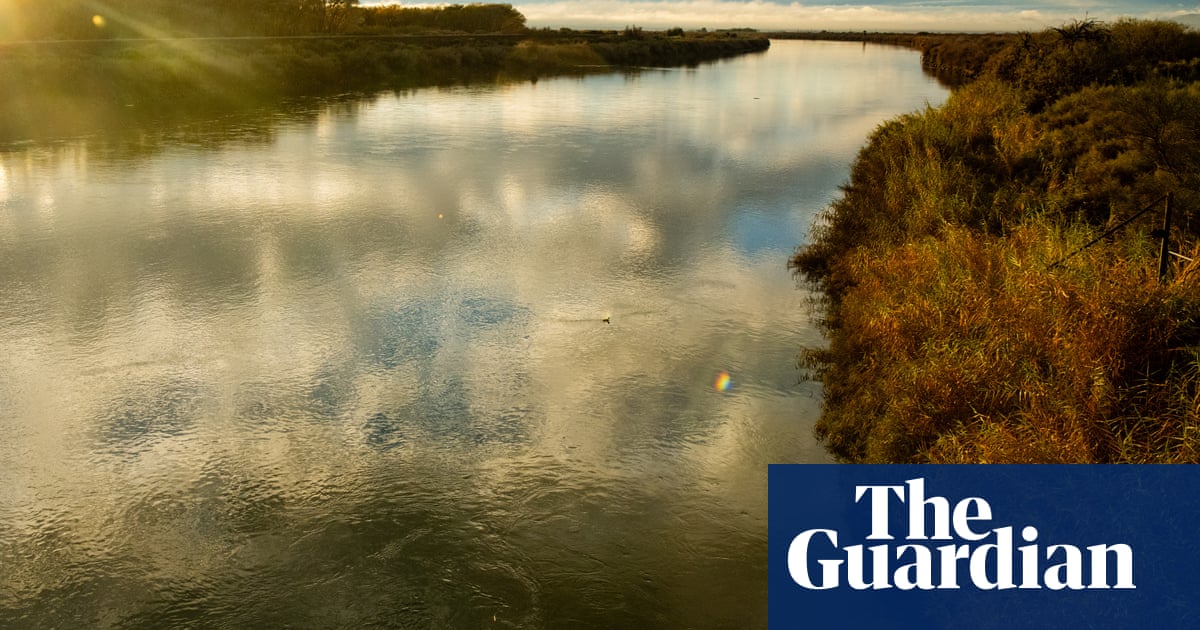In an unprecedented deal, a private company purchased land in a tiny Arizona town – and sold its water rights to a suburb 200 miles away. Local residents fear the agreement has ‘opened Pandora’s box’
One of the biggest battles over Colorado River water is being staged in one of the west’s smallest rural enclaves.
Tucked into the bends of the lower Colorado River, Cibola, Arizona, is a community of about 200 people. Maybe 300, if you count the weekenders who come to boat and hunt. Dusty shrublands run into sleepy residential streets, which run into neat fields of cotton and alfalfa.
Nearly a decade ago, Greenstone Resource Partners LLC, a private company backed by global investors, bought almost 500 acres of agricultural land here in Cibola. In a first-of-its-kind deal, the company recently sold the water rights tied to the land to the town of Queen Creek, a suburb of Phoenix, for a $14m gross profit. More than 2,000 acre-feet of water from the Colorado River that was once used to irrigate farmland is now flowing, through a canal system, to the taps of homes more than 200 miles away.
A Guardian investigation into the unprecedented water transfer, and how it took shape, reveals that Greenstone strategically purchased land and influence to advance the deal. The company was able to do so by exploiting the arcane water policies governing the Colorado River.
I kind of laughed, cried and cringed, when I fl read Nestlé did the exact same predatory thing in California as they did in Africa, and that was to divert fresh water rivers to then bottle said water and sell it back to the locals. Ain’t that just a bitch.
There is no “free market” regarding water. Only captive audiences.
The Anasazi/Chaco culture collapsed when the water ran out. They were partially in Colorado. Apparently no lessons were learned.
Maybe lessons were learned. As in “this is how we do it”. It wouldn’t surprise me.
Unprecedented my ass! This is almost exactly what Nestlé have been doing in Canada for decades.
That and their reliance on child slavery is why I don’t buy anything from Nestlé or their hundreds of subsidiaries.
It’s probably not just nestle. I’m not a huge fan of chocolate to begin with, but when that nestle cunt said that without slavery we wouldn’t be able to eat chocolate, chocolate was dead to me. Maybe we shouldn’t have chocolate, or maybe a bar of chocolate should be 20 dollars. I don’t care either way.
Yeah, the answer is the resources of the world should be considered a gift that you don’t get to just always have.
We can’t just have infinite chocolate but we can have it, maintain a reliable growth and paid workers and have less of it… But it would make things feel more unfair when those born and gifted with money more easily afford it.
So we equalize the price through force underhanded practices. It’s a double edged sword of trying to supply the commons with something that would otherwise be rare because it’s something nice to share. It gets corrupted eventually by profit chasing eventually anyways.
It would help if the wealthy didn’t also think they deserve everything all of the time but it’s spread to so many other groups of people that now it’s just the way people expect it to be…
Well it won’t be like this forever.
Maybe we shouldn’t have chocolate, or maybe a bar of chocolate should be 20 dollars.
The people owning the businesses can make less profit and pay workers respectable wages without raising prices.
That’s only if they’re forced to, though.
lol unprecedented? The entire country of LA would not exist without the early-LA government buying up water rights in the eastern sierras to pipe to LA, and then telling the local farmers there they were shit outta luck the first time drought hit.
If anyone is interested in Western US water rights - Cadillac Desert by Marc Reisner is a great book. I usually recommend at least the first quarter of it, as it gets pretty dry and repetitive in the second half. But the first couple chapters talk about the first expedition down the Colorado River and early water rights, which was super interesting. Second half of the book mostly goes over large water projects like dams and aquaducts.
Lovely little suburban ecological disasters.
The selling of water rights is common in the Western United States and has been done for decades. If anything, it is the best way to get farmers to stop farming and preserve the water.




